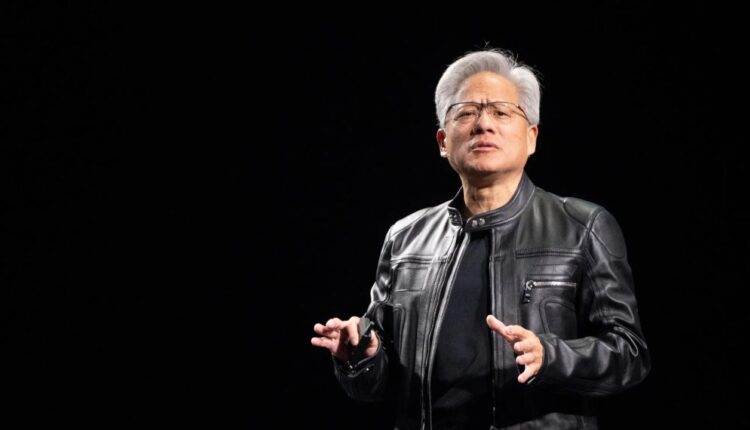Nvidia CEO Jensen Huang has talked about how U.S. legislators and the public are worried about the possibility that the Chinese military could exploit American-made AI technology. Huang said in a recent CNN interview that it is unlikely that China will use Nvidia’s chips for military purposes because Beijing has enough computational power of its own.
Huang’s statements come at a very important time, shortly before his second trip to China this year. Nvidia is dealing with a complicated geopolitical situation that is being formed by U.S. export limits and more competition in the development of artificial intelligence.
Table of Contents
Huang: China Doesn’t Need Nvidia’s Chips for Military Use
Huang said in response to worries that China would utilise Nvidia’s powerful semiconductors for military or intelligence reasons, “They just can’t rely on it.” He stressed that export limitations make access to U.S. technology unpredictable, which makes it a bad choice for important military systems.
He said, “China already has a lot of computing power.” “They don’t need Nvidia’s chips or American tech stacks to build their military.”
U.S. Restrictions Hit Nvidia’s Bottom Line
The U.S. government has put severe export limitations on AI chips, which means that Nvidia can’t sell its most powerful technologies to Chinese customers. These rules are part of a bigger plan to keep the US ahead in technology, and they have already caused Nvidia’s market share in China to drop sharply.
Huang said in May that chip restrictions have almost cut Nvidia’s operations in the area in half. The most recent set of restrictions, which went into effect in April, would likely cost the corporation billions of dollars in missed sales.
Even still, Nvidia is said to be working on new AI processors that will meet export limits. This shows that the company still wants to be in the Chinese market.
Balancing Act Between Washington and Beijing
Act of Balance Huang’s comments show that he is still trying to find a compromise between U.S. regulatory worries and Nvidia’s global business goals. He remarked, “We want the American tech stack to be the standard for the whole world.” “We need to look for all the AI developers in the world to do that.”
He said that about half of the world’s AI developers are in China. This shows how crucial it is for U.S. technology to stay available in other countries if the U.S. wants to stay ahead in the AI field.
People have noticed this difficult balancing act. Daniel Newman, CEO of The Futurum Group, said that Huang is “walking a tightrope” between keeping Nvidia’s long-term growth in China and making U.S. political officials happy.
Newman, on the other hand, questioned whether it was right to completely ignore security concerns. He stated, “It’s hard to fully believe that China couldn’t use Nvidia’s most advanced technologies for military purposes,” adding that these kinds of technologies are generally at the heart of AI training systems used for advanced weapons.
Concerns Over DeepSeek and Open-Source AI
DeepSeek, a Chinese AI business that is said to be working on military and intelligence projects, is a big worry for U.S. officials. The firm has said publicly that it employed Nvidia’s CPUs to train its big language models.
Huang openly addressed these worries, saying that there is no solid proof that DeepSeek’s open-source R1 reasoning model represents a direct danger, even though there is a discussion about it. Instead, he called the approach “revolutionary” and said that its open-source nature sped up AI research in startups, industries, and governments throughout the world.
Interdependence and Global Competition
Huang ended the interview by saying that the relationship between the U.S. and China is both competitive and related. He remarked, “The truth is that China and the U.S. are competitors, but we depend on each other a lot.” “Respecting our competitors is fine as long as we can compete and both want to win.”
As Nvidia keeps making chips that meet standards and strengthens its position in the worldwide market, Huang’s diplomatic style may be key in helping the company deal with geopolitical concerns while moving ahead in the global AI race.


